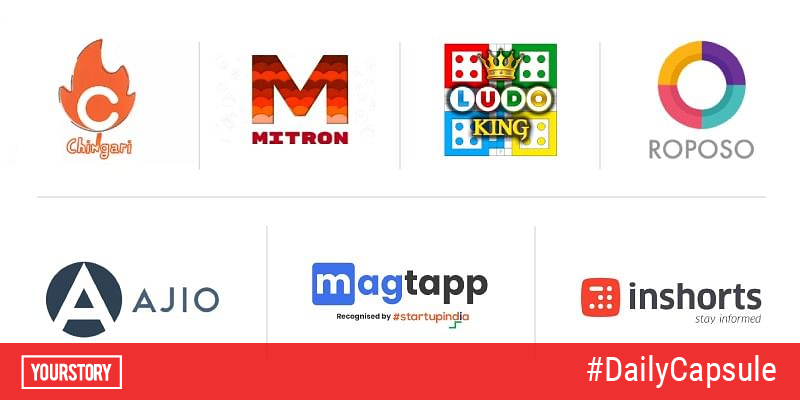Chennai-based PikMe allows users to virtually join queues before going shopping
COVID-19 has changed the dynamics for Chennai-based hyperlocal delivery startup PikMe, pushing it to venture into a virtual queue and appointment management system.
Ohio-headquartered startup SOLYD was founded in 2018 to solve the problem of fragmented transportation logistics across the globe. In October last year, the startup rebranded its transportation logistics platform as RidesApp and continued to remain operational in the US. At the same time, it entered the Indian market as to focus on hyperlocal grocery delivery. PikMe is headquartered in Chennai.
However, the COVID-19 outbreak pushed PikMe to improvise and innovate. The startup ventured into Queue and Appointment — a virtual queue and appointment management system — in April 2020.
In a conversation with YourStory, Founder and CEO Prabhat Kumar Singh says, “The combination of lockdowns, sales, and success templates led us to Pune. Before that, we tried in five cities on a smaller scale in India. Now, we are formally active and operational in Pune.”

Founder and CEO of PikMe Prabhat Kumar Singh
How does it work?
For its hyperlocal business model, PikMe provides partner stores with branding and fulfilment services. Local shops and neighbourhood kirana stores get to do their own branding, and PikMe users can scroll through the options as their local identities. On the fulfilment front, PikeMe provides cloud delivery capabilities to these stores.
“For every region, we take the capability needs and deploy shared resources across shops to fulfil the last-mile deliveries,” Prabhat explains.
The virtual queue and appointment system are integrated with Apple and Google Exposure APIs. “This is a derived service for exposure and crowd management to have absolute control over safe shopping experience,” he says. In fact, the service works in tandem with respective government-mandated tracking systems — Aarogya Setu — for India.
PikMe provides a free public virtual-queue for its customers, thus allowing them to join the queue before going shopping. “This also helps partner stores save their employees and patrons from cross-infection (of COVID-19),” adds Prabhat.

Team at PikMe
Meet the team
An IIT Kharagpur alumnus, Prabhat has earlier worked with JP Morgan Chase and Standard Chartered. He also worked as the Chief Data Scientist at Innoplexus.
Meanwhile, Co-founder and CFO Meenu Agarwal comes with over 20 years of experience in tax, finance, and para-legal matters of investment banking at JPMorgan Chase and other public accounting firms.
Prashant Singh, Co-founder of SOLYD, manages the India Operations for PikMe, whereas Sreeni Herugu, also a Co-founder of SOLYD, manages the US operations. Sreeni, a Blockchain Startup Advisor, has also been a Senior Fintech Consultant for Wall Street banks for over 20 years.
At present, PikMe has a team of 21 employees — eight developers, four digital marketing professionals, five employees in the sales teams, and four in the management team.
Bootstrapped since inception, the startup has raised $250,000 in an angel round of investment in 2019.

Meenu Agarwal, Co-founder and CFO at PikMe
Shifting gears
For its hyperlocal business, “We target small and medium-sized shops to enable their online stores and demand fulfilment. We acquire them through referrals and door to door canvassing,” the CEO says.
The startup provides a B2B SaaS model to its partner stores and shops to manage their inventory, sales, and customer flow. It charges five percent on sales on the invoice.
For virtual queue management, PikMe allows public users to nominate shops that they would want to avail of the services. Based on the polls, it has been onboarding shops and stores. While it does not charge its users for booking virtual appointments or queue management, the businesses or partner stores pay 10 paise per customer for an appointment in India.
In the US, partner stores are charged one cent for appointments and queues.

Illustration: YS Design
For the hyperlocal business, PikMe has over 120 businesses under its umbrella. “We are targeting to onboard 25 percent of the six million kirana stores this year,” Prabhat adds.
Meanwhile, under its queue management services, the startup has served 24,000 end-users in the USA. In India, it is only active in Pune with nearly 80 stores. “The pace will accelerate. People are nominating Big Bazaar and Shoppers Stop for Queue and Appointments,” he says.
Market overview
According to Insight Partners, the queue management system market was globally valued at $435 million in 2019 and is expected to reach $618.9 billion by 2027, growing at a CAGR of 4.9 percent. PikeMe’s queue management services are in line with players, including , , Mio Salon, , Queminder, , and .
Hyperlocal grocery and allied services is a highly competitive market in India. More so because of an influx of several digital kirana store platforms in the past few years in the country.
Allied Market Research states that the hyperlocal services market size was valued at $1,324.2 billion in 2019, and is estimated to reach $3,634.3 billion by 2027, growing at a CAGR of 17.9 percent from 2021 to 2027.
Since the beginning of the pandemic, players like and have entered this space. , , , and are also a part of this race. However, Prabhat believes PikeMe has a differentiator to offer. “We differentiate ourselves with branding and fulfilment services,” he adds.
Going ahead, PikMe is targeting to onboard over 2,500 stores with monthly revenue of Rs 500 to Rs 1,000 from each. “We have plans to raise funds for market expansion,” the CEO quips.
Edited by Suman Singh













